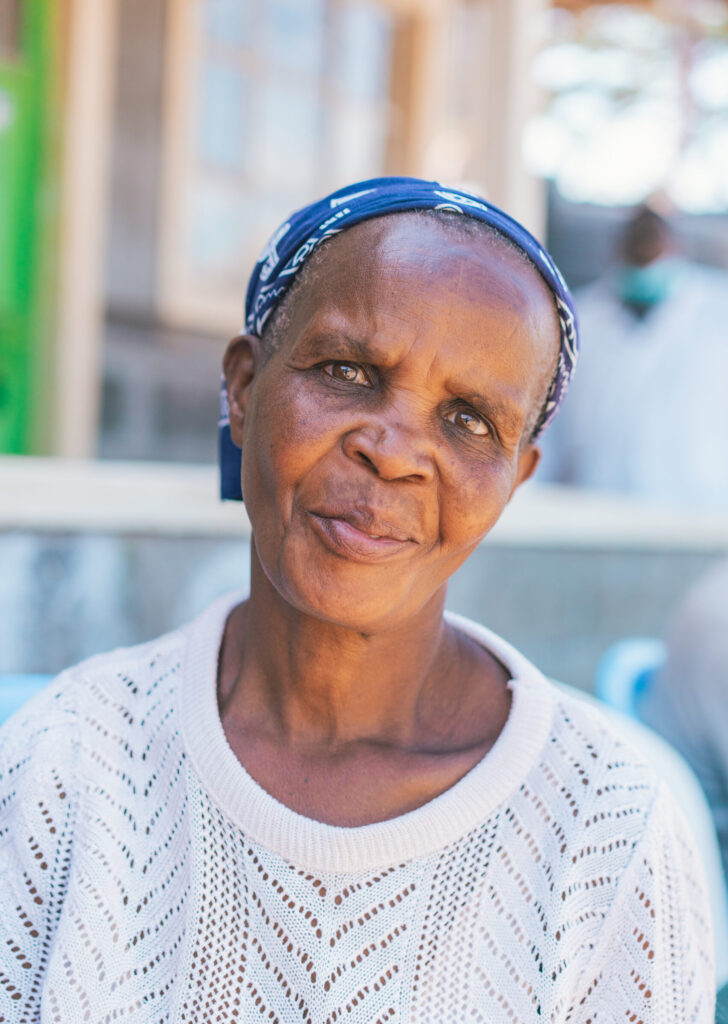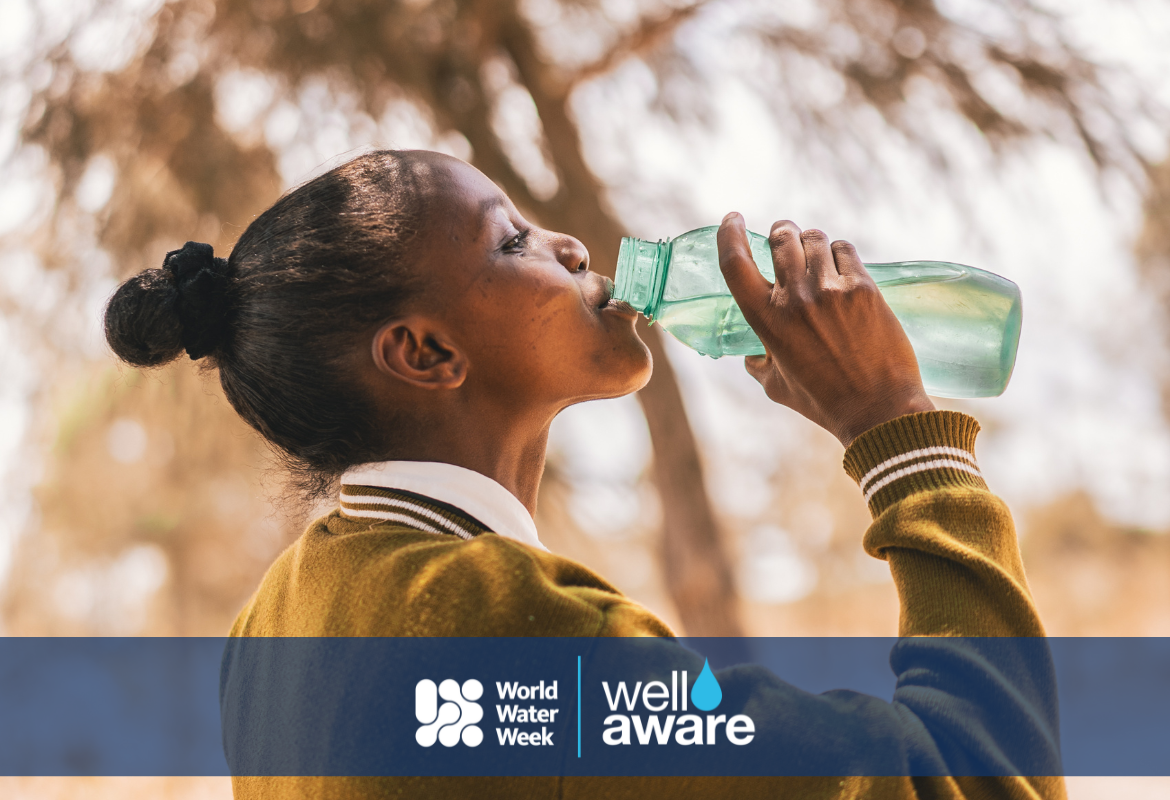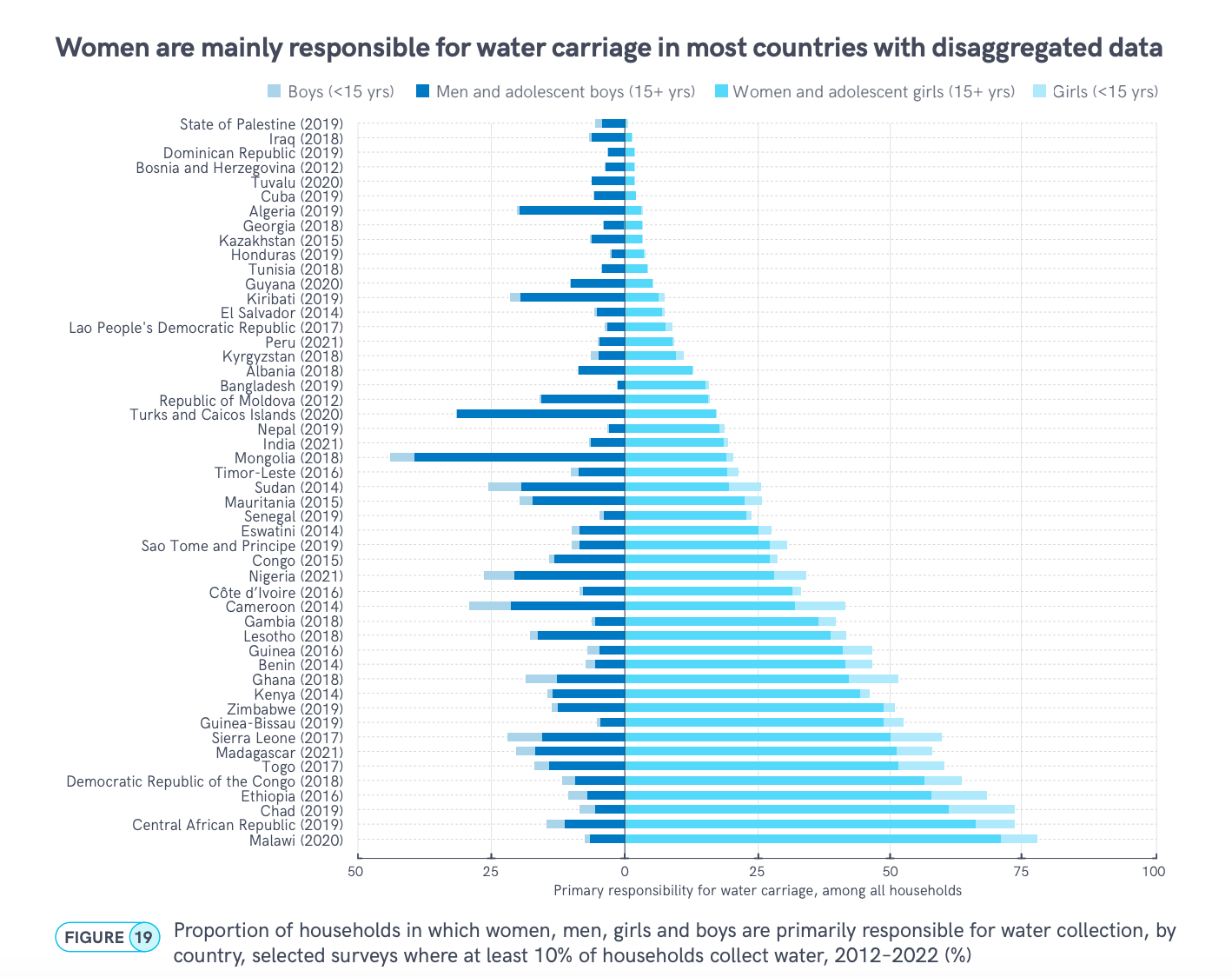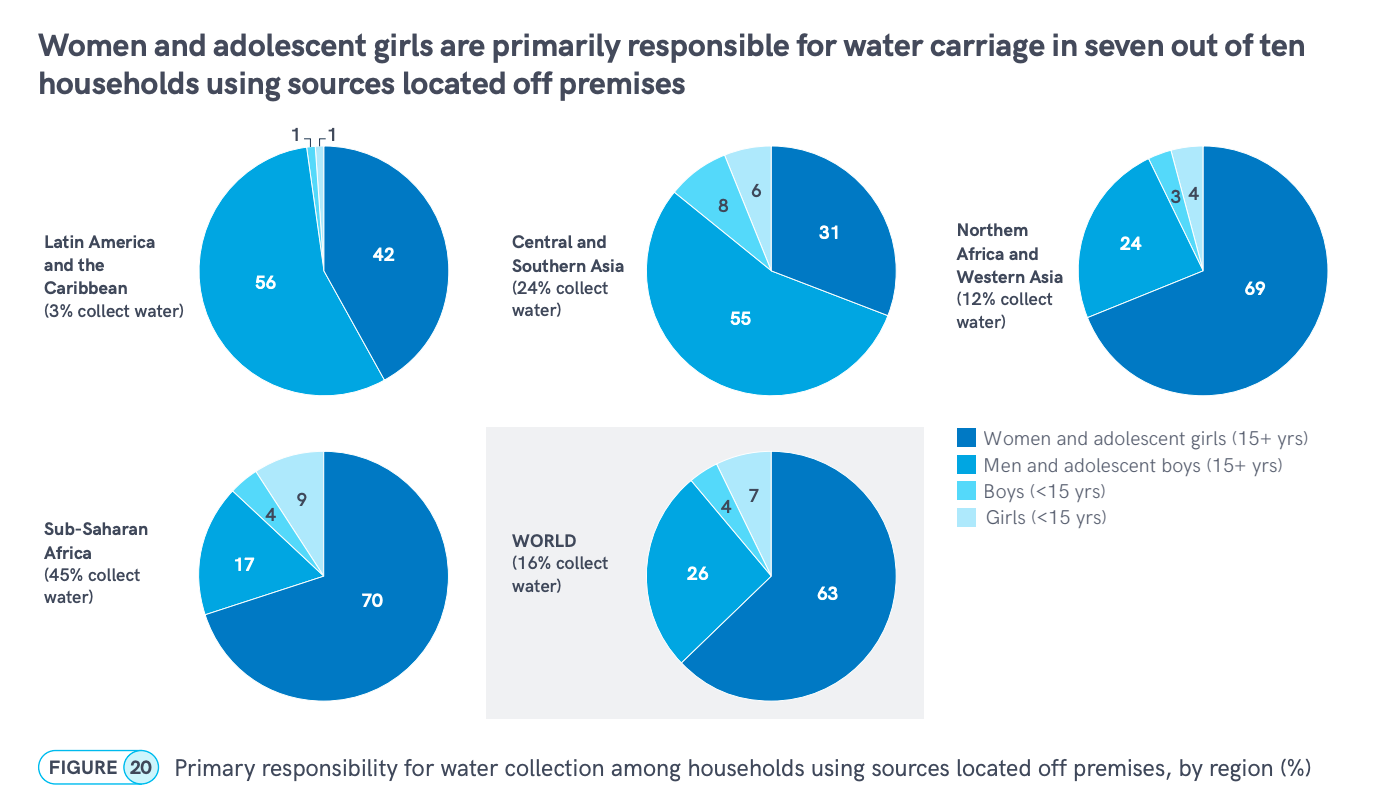August 18, 2023
Women Bear the Burden When There is No Water
Women in Kenya experience greater inequality when there is no access to clean water. But why?
Nearly 900,000 people without basic drinking water live in Sub Saharan Africa, and 7 out of 10 households without a clean water source place the onus of collecting water on women and girls. As a result, they are walking to collect water for their families an average of 3.7 miles each day. Compounding the treacherous walk to collect water, the nearest water source is often contaminated and unsafe for human consumption.
A new global study ‘Women and Water: The Hidden Gender Challenge’, has found that globally, girls are 2x more likely to bear the water burden than boys; in Kenya this increases to almost 3x; and in some other African countries, the disparity is even greater.
Since this inequity is only recently being examined thoroughly, our access to disaggregated data, which teases out impact based on gender, remains sparse. However, the below visualizations of statistics gathered from the newly released report from the World Health Organization, Progress on household drinking-water, sanitation and hygiene 2000-2022: Special focus on gender, illustrates the profound divergence in gender responsibilities of water carriage worldwide:
Why is the lack of clean water and gender inequality intertwined so closely?
As shown in the graphs above, women are often tasked with collecting water as a part of their household duties, while men focus on their duties outside of the home. Because women and girls spend hours each day walking to collect water, it hinders women from being able to hold consistent jobs, increases their risk of getting sick, prevents girls from attending school, and exposes women and girls to a much higher rate of sexual violence.
When clean water is available in a community, education increases by 34% on average, and 58% for girls specifically.
With a lack of clean water comes a dangerous lack of safe sanitation. Unsafe water, sanitation and hygiene (WASH) related diseases account for more than half of all deaths among children under five years old in developing countries. Waterborne illness is fatal for babies and very dangerous for young children, resulting in the spread of diarrhoeal disease, cholera, polio, and worm infections. As women are primarily responsible for taking care of their children, their health is also put at risk, and so is their security.
 Women face even greater risk while fetching water from unsafe sources a far distance away, as they are often traveling alone or with small children. Women are more likely to be harassed or sexually assaulted when forced to walk miles for water, because men in the area know where they can find vulnerable women at the nearest water source searching for their family’s water. Half of the population of Sub Saharan countries have no toilets and have to defecate openly, increasing their chances of being harmed and abused when defecating.
Women face even greater risk while fetching water from unsafe sources a far distance away, as they are often traveling alone or with small children. Women are more likely to be harassed or sexually assaulted when forced to walk miles for water, because men in the area know where they can find vulnerable women at the nearest water source searching for their family’s water. Half of the population of Sub Saharan countries have no toilets and have to defecate openly, increasing their chances of being harmed and abused when defecating.
A lack of access to safe and reliable water also has tragic implications for women’s reproductive health, especially during menstruation, pregnancy, and childbirth. Safe sanitation becomes critical when a girl is beginning her menstrual cycle, making her less likely to attend school that does not have safe sanitation utilities. Her absence in the classroom during this time worsens her likelihood of being able to keep up in school and often results in her dropping out entirely. Being unable to complete even a primary education significantly limits her ability to break this cycle of inequity and violence.
Inadequate access to water and sanitation is a primary barrier to gender equality. The UN has recognized that water, sanitation and hygiene are imperative in achieving women’s rights, as well as achieving all other Sustainable Development Goals (SDGs). There remains many challenges to overcome to achieve SDG 6 “to ensure availability and sustainable management of water and sanitation for all”, though the impact on women and girls, specifically, is emerging as one of the most important issues to mitigate.
When you support reliable, clean water organizations working in developing countries, you are broadening life opportunities for women and girls. Clean water increases a girl’s chance of graduating school, finding a job, and ensuring a life not consumed with water searching and sexual violence. To learn more about Well Aware’s water projects and how we are working towards SDG 6 and gender equality in East Africa, click here.


